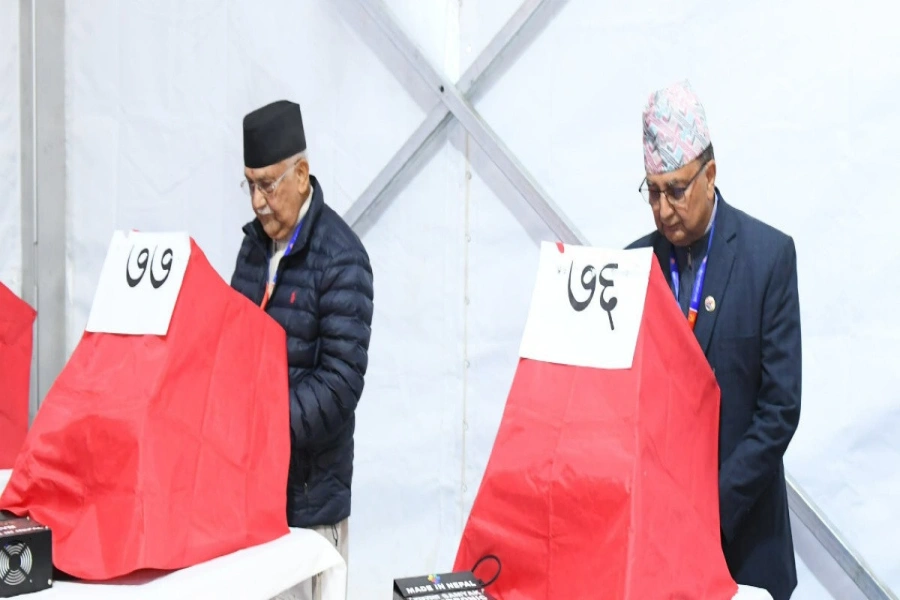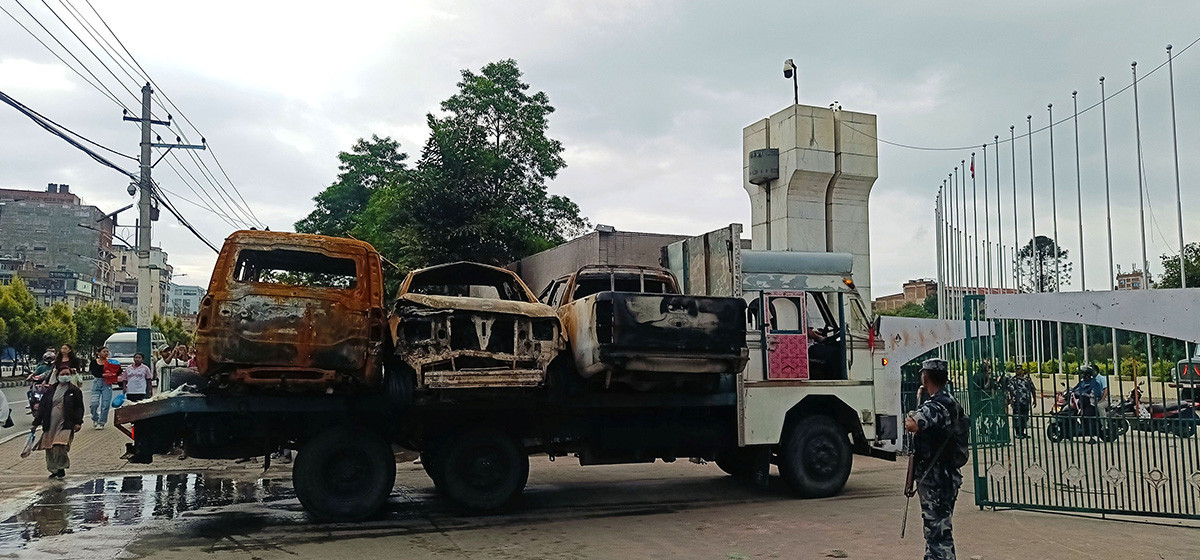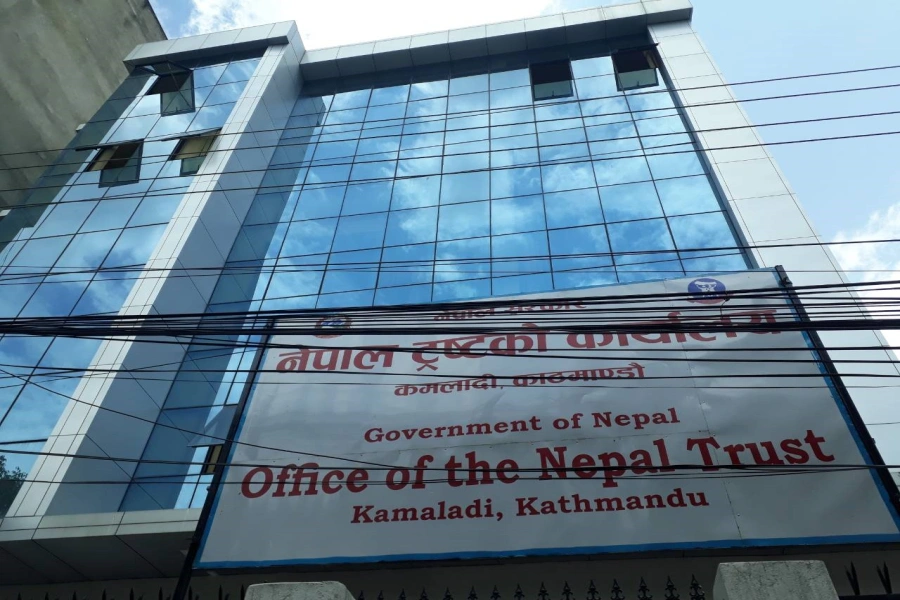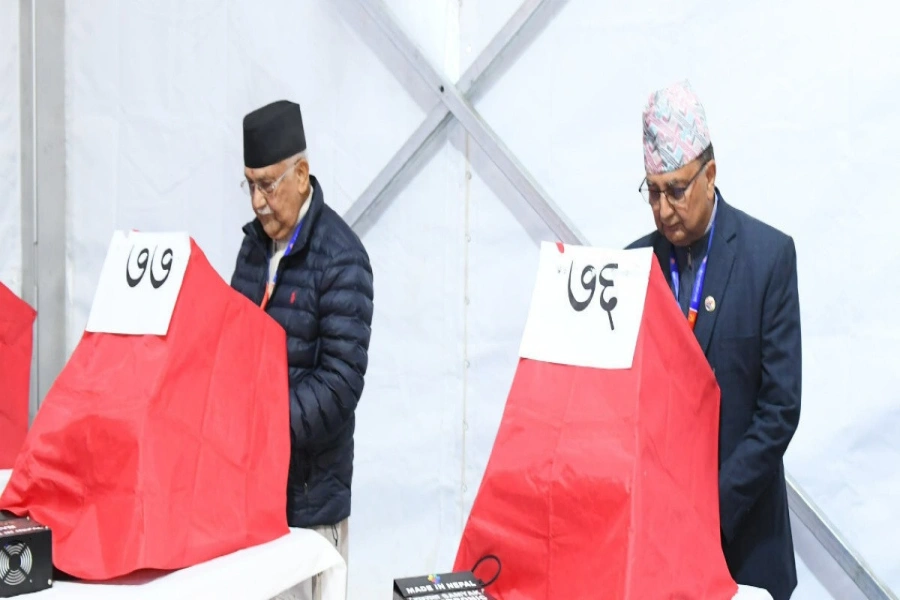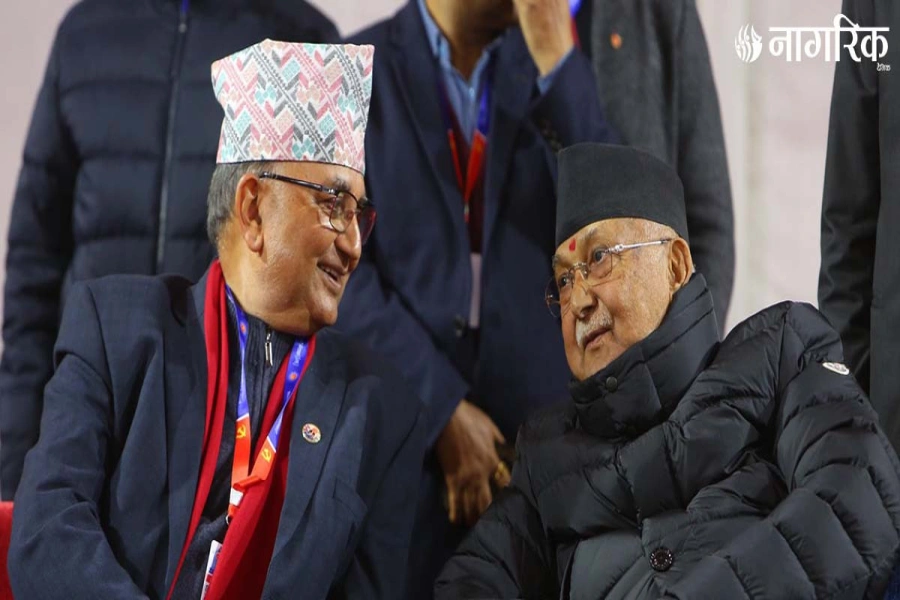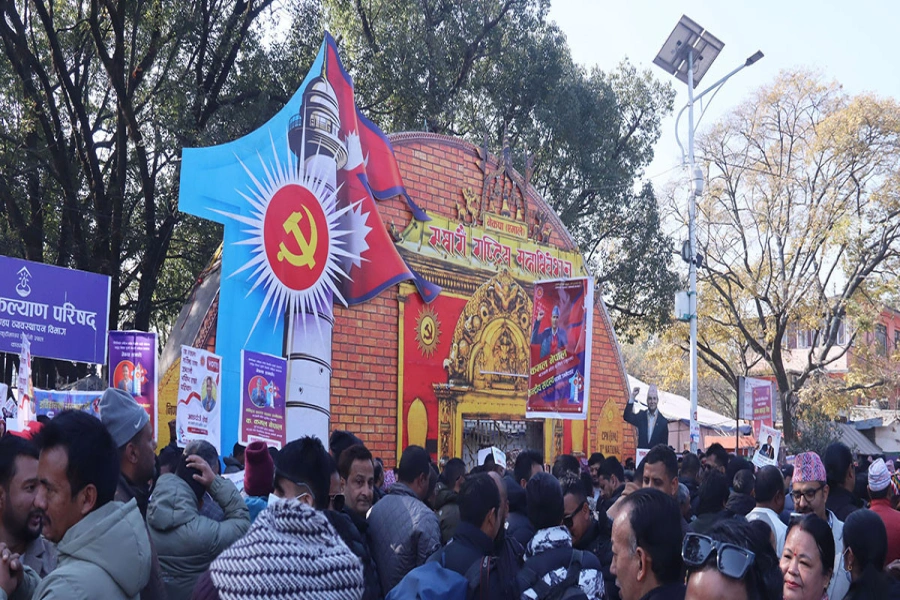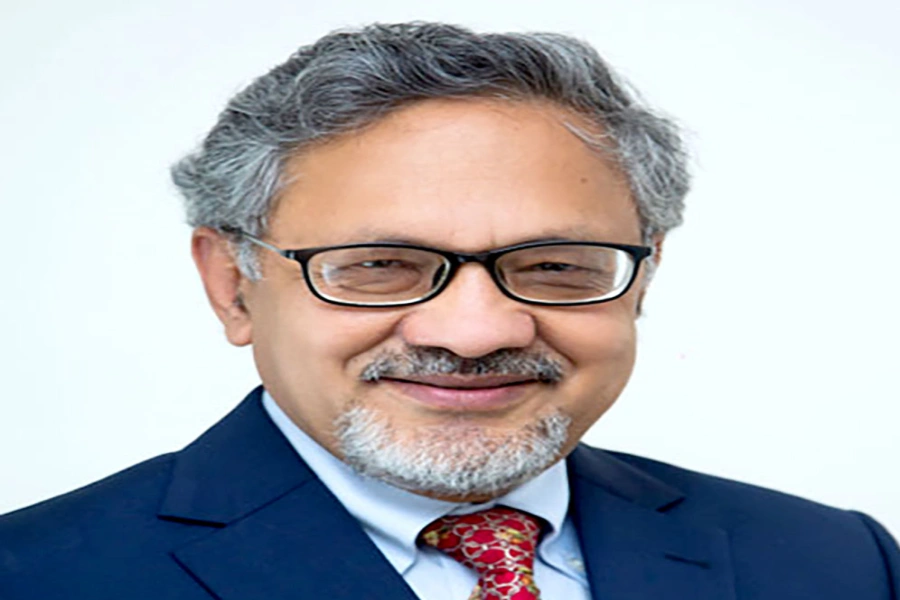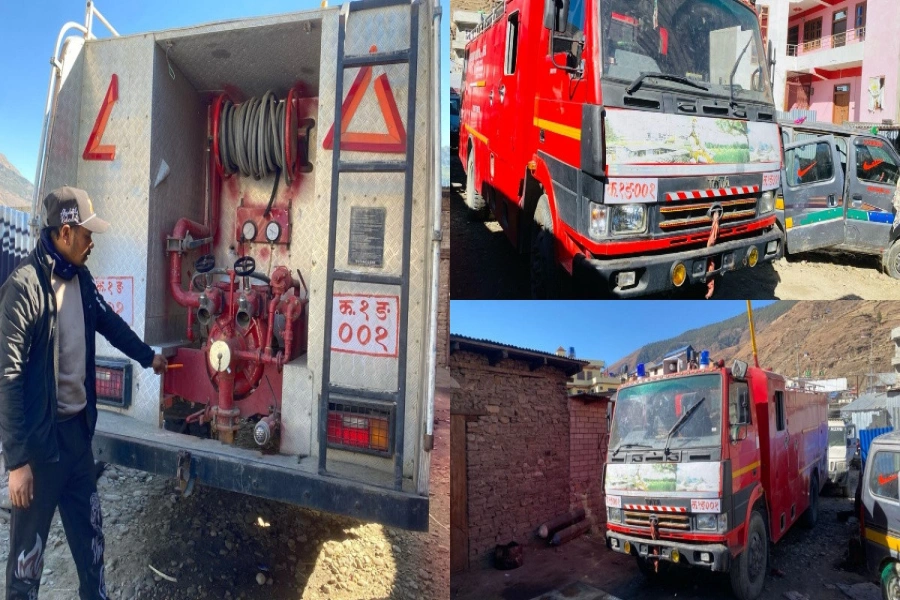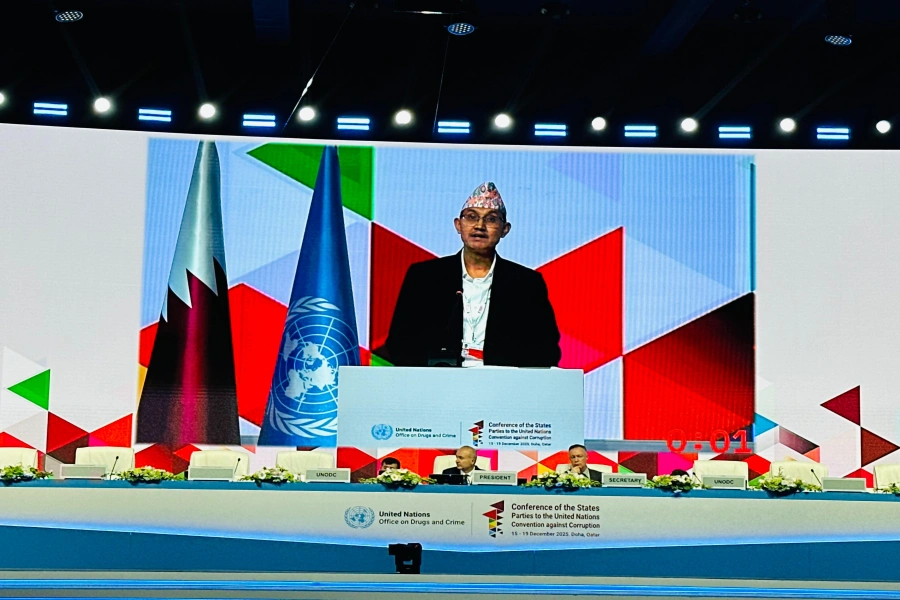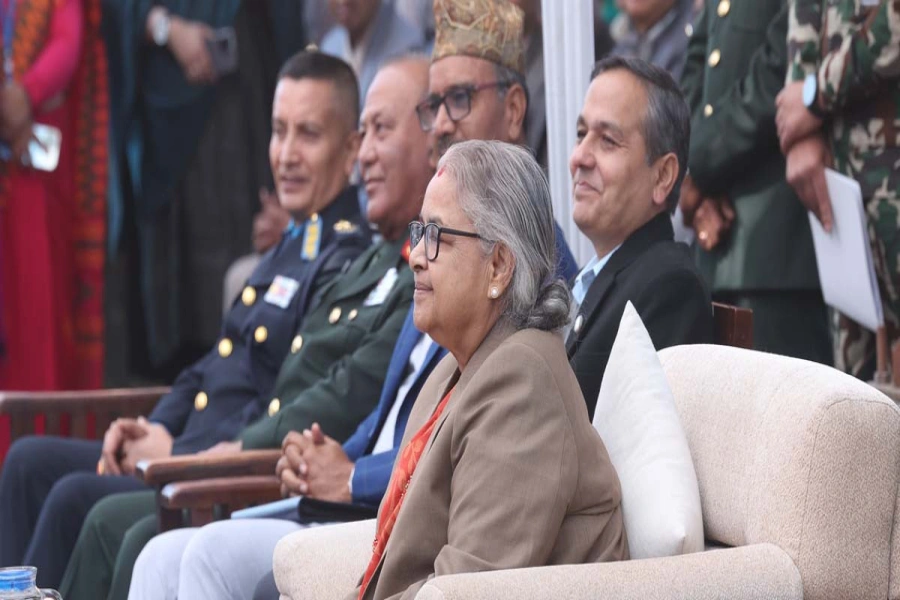KATHMANDU, Sept 14: The Supreme Court (SC) has sentenced former general manager of Nepal Oil Corporation (NOC), Yuvraj Sharma, to one year in prison and imposed a fine of Rs 3.4 million in a corruption case. The court made this decision by partially overturning its verdict from 10 years ago in a corruption case that dates back 20 years.
The full text of the verdict, delivered by the full bench of Justices Sapana Pradhan Malla, Manoj Kumar Sharma, and Kumar Chudal on July 12, 2022, was made public on Friday.
Yuvraj Sharma, who had previously worked as the head of the Occupational Safety and Health Project under the Ministry of Labor and Transport Management, later became the general manager of the NOC.
At that time, the Commission for the Investigation of Abuse of Authority (CIAA) filed a case at the Special Court on October 21, 2002, accusing him of illegally amassing wealth, depositing money in various banks, buying shares in different companies, purchasing property, and building a lavish mansion. It took 20 years for the case, initially filed at the Special Court, to reach a final verdict.
In this case, a joint bench of the then Chief Justice Khil Raj Regmi and Justice Sushila Karki of the SC delivered a verdict on January 9, 2013. Before that, a verdict was issued by the Special Court on December 13, 2007, by the bench of the then-Chairman Bhupadhwaj Adhikari, along with members of the Special Court Komal Nath Sharma and Cholendra Shumsher Jung Bahadur Rana.
The Special Court acquitted Sharma in the case. Against this decision, the CIAA filed an appeal at the SC. The SC sentenced Sharma to one year in prison, imposed a fine of Rs 5.40 million, and ordered the confiscation of assets worth over Rs 4.3 million, including shares, savings certificates, and bank deposits.
After that, Sharma submitted a review petition to the SC on January 9, 2013. In 2015, the court granted an order allowing the case to be reviewed.
High-profile corruption cases pending at Supreme Court for two...

"The joint bench of this court, in its decision on January 9, 2013, partially overturned the earlier verdict, sentencing Yuvraj Sharma to one year in prison. Since he has already served his one-year sentence, no further action is required regarding the punishment," the SC stated in its latest full-bench decision. "As Sharma has been fined Rs 3.4 million, if he submits a petition claiming the excess amount paid, it should be returned through the bailiff section of the Kathmandu District Court."
"As Sharma's assets worth Rs 3.4 million need to be confiscated, 20,000 shares worth Rs 2 million in Hospital for Advanced Medicine and Surgery Pvt Ltd (HAMS), Rs 900,000 in national savings in the name of his wife, Shila Pokharel Sharma, and Rs 527,000 of the Rs 572,000 worth of shares in Kathmandu Institute of Technology Pvt Ltd should be confiscated and deposited in the reserve fund," the SC's verdict stated.
During his tenure, it was found that Sharma accumulated assets worth Rs 18.5 million. Of this, Rs 6.66 million were earned legally, while assets worth Rs 3.4 million were unexplained according to the court. "Given the significant discrepancy between the total assets acquired during the investigation period and the unexplained assets, it is concluded that Sharma's standard of living was abnormally high and that he must have acquired illegal assets," the SC stated.
According to the SC, if the assets acquired by a public servant during their service exceed their lawful income, the extent of the excess becomes a question of whether it is considered illegal acquisition. Evaluating income and assets from a long time ago is certainly challenging to be entirely objective.
Considering the increase in asset values over time, inflation, and the lack of a developed system for systematic accounting of all income and expenses in our social reality, the general discrepancy between income and assets should be regarded as natural.
"The nature of the offense is such that assets acquired by a person holding a public position, for which the legitimate source cannot be verified, should be considered as having been acquired through corruption. However, since measuring significant increases in assets is challenging, this should be assessed relatively rather than absolutely," stated the SC.
The verdict also cites a precedent set by the Indian Supreme Court. In a case against Krishnanand in Madhya Pradesh, it was explained that a 10 percent increase in assets compared to income should not be considered as an abnormal lifestyle. In other words, a minimal increase in assets is not deemed as illegal wealth.
In the case of Hare Krishna Bhagat against the Government of Nepal, the SC stated; "...While some sources of income may be as reliable as the defendant claims, the passage of time may result in the absence of documentary evidence. Our legal system does not require all aspects to be supported by documented proof."
Therefore, considering social, legal, and economic factors, a discrepancy of up to 10 percent between the value of assets and income cannot be deemed unreasonable or abnormal. The case also sets a precedent that, in cases where specific criminal acts are not involved but rather allegations are based on estimates of income and expenditure, such estimates cannot be fully accepted as accurate grounds for claims.
Similarly, in the case of Mahendra Gautam against the Government of Nepal, where the difference between income and expenditure was less than two percent, the precedent established that it is not appropriate to consider the defendant's lifestyle as unreasonable or abnormal compared to their legitimate sources of income.
Similarly, in the case of Ganesh Bahadur Shrestha against the Government of Nepal, it was explained that a difference of only 1.39 percent more in assets than legal income cannot be deemed abnormal. Precedents indicate that discrepancies of up to 10 percent between income and assets are considered natural by the court.
In the case, the SC had repeatedly requested details from the CIAA, but the CIAA had claimed that the documents were lost and did not provide them. The SC has also explained this issue in its verdict.
"The case was filed at the SC by an investigating officer appointed by the CIAA, a body constitutionally empowered to investigate and prosecute corruption cases. Despite decisions being made at various levels, questioning the legality of the entire process based on the lack of a copy of the appointment decision for the investigating officer, which is a highly technical issue, is not legally justified in a serious case of illegal asset acquisition," the verdict states.
"Certainly, the court must treat procedural integrity with seriousness when administering justice. When the status of the investigating officer is clearly established through investigation and prosecution, it is not acceptable to use a minor technical issue that does not affect the core subject of the case as a basis to reject the case entirely."
The Supreme Court has explained that it is not scientific to calculate agricultural income by treating all types of fields and farming as equivalent. When calculating agricultural income, factors such as the condition and geography of the land, the type of crops being grown, and the availability of irrigation must be considered.
When calculating the rate of income, the body authorized to set prices should base its calculations on the rates determined for that specific year. Similarly, if there is land under lease, half of the income must be allocated for the leaseholder when calculating income. If someone earns income by renting out land, the calculation should be based on the terms of the lease agreement.
Among the lands acquired through inheritance in Yuvraj Sharma's name, there were rice fields, sloped land, and leased land. He had reported income from agriculture. The SC's verdict states that the income from land under joint family ownership should be considered as belonging to all members of the family. When calculating agricultural income, it was determined that the calculation should be based on the amount of land held by the defendant.
Yuvraj Sharma entered government service as a mechanical engineer in 1979. He worked at the Ministry of Labor and Transport from 1996 and served as the general manager of the NOC from 1998 to May 2000.



